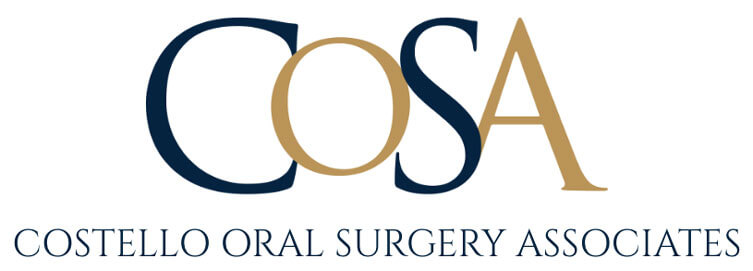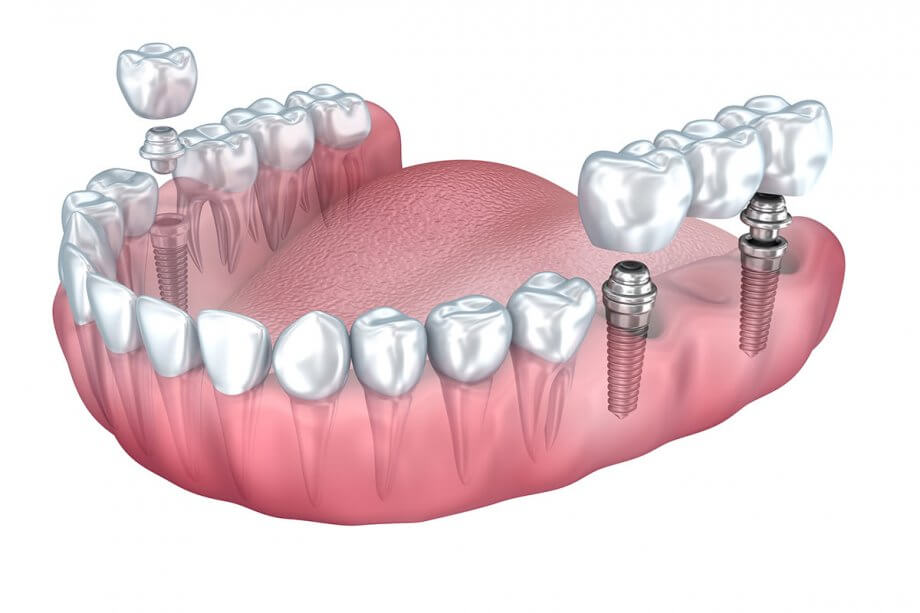If you are missing a tooth, your dentist may offer you the choice between a dental implant and a dental bridge. Both solutions have unique pros and cons, so fully understanding your choices is vital to making the determination that is truly right for you.
What Is a Dental Implant?
A miniature screw made of biocompatible titanium, a dental implant is inserted into the jawbone to replace the tooth roots. Over the next three to six months, it will fuse with the bone, creating a secure, stable base for a highly functional and aesthetic replacement tooth. Unless you receive an immediate-load implant, you will need to wear a partial denture during the healing phase.
Benefits of Dental Implants
Dental implants have many benefits, including:
Natural appearance and function: Dental implants function, feel, and look just like natural teeth.
Jawbone health: When a tooth is removed, the body naturally begins to resorb the jawbone. A dental implant preserves the bone by replacing the tooth roots.
Protecting adjacent teeth: A dental implant stands alone. Unlike a dental bridge, the adjacent teeth are undisturbed.
Virtually maintenance-free: Dental implants can last a lifetime with excellent oral hygiene and regular dental checkups.
Disadvantages of Dental Implants
Dental implants also have a few disadvantages:
Cost: Dental implants cost more up-front than dental bridges, and they may not be covered by insurance.
Surgery: All oral surgeries carry minimal risks, including nerve damage and infection. While still quite low, these risks are slightly higher for those with heart disease, diabetes, or other underlying health conditions.
Time: Bone takes a long time to heal. Unless you receive an immediate-load implant, it will be three to six months before your final restoration can be placed.
What Is a Dental Bridge?
A dental bridge spans the gap where one or more teeth in a row are missing. A traditional bridge is anchored to the natural teeth with crowns, while a Maryland bridge is bonded to the backs of the teeth.
Advantages of Dental Bridges
Dental bridges have a few advantages, including:
Affordability: Dental bridges are often comparable financially to dental implants, and they are commonly covered by most insurance plans.
Simplicity: Once you have the tooth removed, there is usually no additional oral surgery involved. It is simple to prepare the teeth and attach the bridge often within one maybe two visits with your restorative dentist.
Speed: No healing period is needed. You will have your natural teeth prepared and impressions taken for the dental lab, and then return in a few days to have the bridge placed.
Drawbacks of Dental Bridges
Dental bridges also have significant drawbacks:
Adjacent Tooth Damage: Healthy tooth structure must be removed from the neighboring teeth to prepare them for crowns. This heightens the risk for tooth decay or even fracture.
Less Aesthetic: While today’s dental bridges are reasonably aesthetic, they connect the teeth on either side of your missing tooth to each other. Like a natural tooth, a single dental implant is disconnected from the neighboring teeth, providing a more aesthetic appearance.
Periodic Replacement: While dental implants can last a lifetime, dental bridges must be replaced approximately every 10 years.
No dental restoration is right for everyone. Your dentist will help you decide which option makes the most sense for your individual needs, goals, and budget.
Ready to Get Started?
Costello Oral Surgery Associates has been named a Top Dentist by New Jersey Monthly every year since 2011. If you are ready for personalized, cutting-edge, compassionate care, contact us today at 201-712-5556 (Maywood), 201-848-5015 (Franklin Lakes), or 973-513-8100 (Wayne) to schedule your first appointment.

